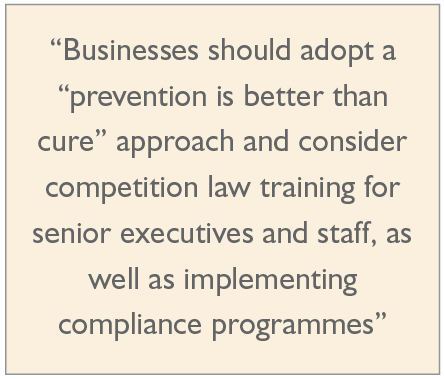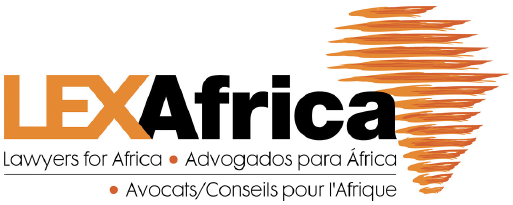 By Pieter Steyn, Werksmans Attorneys
By Pieter Steyn, Werksmans Attorneys
Africa is sometimes described as the “last frontier” of competition law because many African countries have only recently adopted modern competition laws (South Africa only did so in 1999). However, African competition law is developing rapidly and needs to be closely and regularly monitored because the consequences of a competition contravention are serious and include severe financial penalties for the firm, damages claims, reputational damage and even criminal sanctions for involved directors and managers (10 years jail and/or R500,000 (US$36,000) fine in South Africa).
In 2018, the East African Competition Authority (covering 6 East African countries) became operational and the ECOWAS Regional Competition Authority (covering 15 West African countries) was established. Other existing regional competition regimes are the COMESA Competition Commission, which covers 21 African countries, the Economic and Monetary Community of Central Africa, which covers six Central African countries, and the West African Economic and Monetary Union, which covers eight West African countries. A Southern African Development Community regional competition framework that will cover 15 African countries is planned by 2020.
 One of the most significant recent developments in African competition law is in Nigeria, Africa’s largest economy. The Federal Competition and Consumer Protection Bill was signed by the president in February 2019. The new law establishes a commission and tribunal and covers cartels, dominance, anticompetitive practices and mergers as well as consumer protection. Cartel conduct, the abuse of dominance and minimum resale price maintenance are prohibited. It controversially allows the president to regulate the prices of certain goods and services on the commission’s recommendation and criminalises cartels, other competition contraventions and the failure of a firm to cease an abusive practice after receipt of a desist order from the commission. A general penalty may be imposed on body corporates of up to 10 percent of annual turnover. Directors of the body corporate face up to five years jail and/or a N50 million (US$137,000) fine. A tax of 0.5 percent of after-tax profits will be payable by all Nigerian companies to the commission.
One of the most significant recent developments in African competition law is in Nigeria, Africa’s largest economy. The Federal Competition and Consumer Protection Bill was signed by the president in February 2019. The new law establishes a commission and tribunal and covers cartels, dominance, anticompetitive practices and mergers as well as consumer protection. Cartel conduct, the abuse of dominance and minimum resale price maintenance are prohibited. It controversially allows the president to regulate the prices of certain goods and services on the commission’s recommendation and criminalises cartels, other competition contraventions and the failure of a firm to cease an abusive practice after receipt of a desist order from the commission. A general penalty may be imposed on body corporates of up to 10 percent of annual turnover. Directors of the body corporate face up to five years jail and/or a N50 million (US$137,000) fine. A tax of 0.5 percent of after-tax profits will be payable by all Nigerian companies to the commission.
Other important African competition law developments in 2018 and early 2019 included:
- new competition laws came into force in Angola and Botswana (cartel conduct has been criminalised in Botswana);
- significant amendments to South Africa’s Competition Act came into force with a strong focus on restricting dominant firms, widening the Competition Commission’s powers and increasing the penalties for competition contraventions;
- in Namibia, a corporate leniency programme was launched to combat cartels and the Mauritian leniency programme was amended to allow the initiators or coercers of cartels to apply for leniency and get a 50 percent reduction in fines;
- the Zambian, Kenyan, Ethiopian, Namibian, Malawian, South African and Egyptian competition authorities investigated and issued important decisions relating to excessive pricing, exclusive supply arrangements, exclusive purchase undertakings in loan agreements, the fixing of prices and trading conditions, the exemption of joint ventures and tying arrangements by dominant firms; and
- the Zimbabwean competition authority launched a new National Competition Policy and a new competition bill was submitted to parliament in Ghana.
The following trends are increasingly important:
- the increasing importance of regional (as opposed to national) authorities;
- a shift in focus away from merger control towards enforcement and conduct cases (cartels, restrictive practices and abuse of dominance);
- increasing cooperation between African competition regulators and between competition and other regulators in the same country; and
- new competition laws, for example in Ghana, Uganda and South Sudan.
African competition law developments in 2018 clearly indicate that African competition law enforcement will increase going forward. Competition laws will continue to be passed, implemented and reviewed/amended. The risk of competition contraventions for business will accordingly increase. Due to the serious consequences of such contraventions, businesses should adopt a “prevention is better than cure” approach and consider competition law training for senior executives and staff, as well as implementing compliance programmes, including a whistle-blower programme/hotline and dawn raid training (there have been over 70 raids in South Africa since 2016 and raids have also taken place in Kenya, Namibia, Botswana, Malawi and Zambia).
____________________________
LEX Africa is an alliance of law firms with over 600 lawyers in 24 African countries formed in 1993. More information may be found at www.lexafrica.com.

T: (27) 11 535 8000, (27) 11 535 8296
F: (27) 11 535 8600, (27) 11 535 8696


